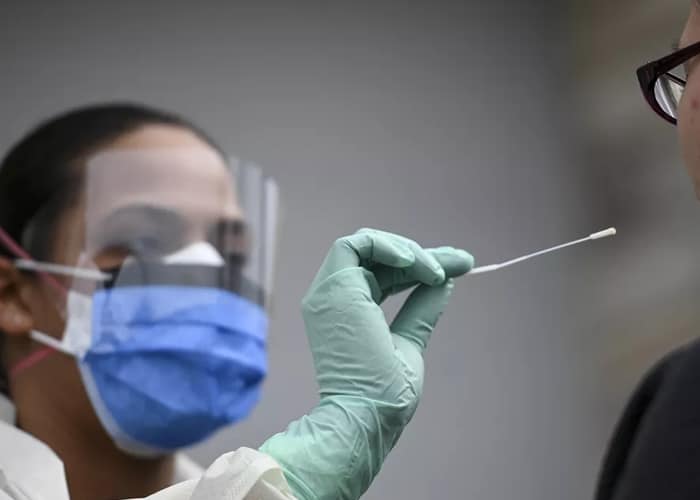Serological surveillance shows 51.5% of Pune people to have developed antibodies against Coronavirus

Last updated on February 15th, 2023 at 12:23 pm
Results of the first serological surveillance study conducted in city of Pune reveal that 51.5% of surveyed population has developed antibodies against the novel coronavirus. The study was conducted in five wards of city within Pune civic body limits, with high incidence of cases. The study shows that in these five highly infected wards that were sampled, there has been an extensive spread of Covid-19 infection. The seroprevalence range was from 36.1% to 65.4% across all the areas.
The study was performed by team of epidemiologists from various institutions – Indian Institute of Science Education and Research (IISER), Pune, and was done under guidance of Prof. L.S. Shashidhara; Savitribai Phule Pune University (SPPU); Christian Medical College (CMC), Vellore; and the Translational Health Science and Technology Institute (THSTI), Faridabad.
The samples for sero-surveillance were collected between July 20 and August 5. For this random blood samples were collected by multiple teams from 1,664 people across the five wards in Pune city with high-incidence of cases. These wards are Yerwada, Lohiyanagar-Kasewadi, Rastapeth-Ravivarpeth, Kasbapeth-Somwarpeth, Navipeth-Parvati.
The ELISA (enzyme linked immunosorbent assay)- based test was developed by THSTI. It helped in detecting IgG (Immunoglobulin G) antibodies against the coronavirus. Persistent Foundation funded the study will INR 75 lakh grant.
If antibodies against the virus are detected in an individual, it indicates that the person had been infected with the virus in past and has got an established immune response to the coronavirus infection.
One of the principal investigators of the study, Dr. Aurnab Ghosh of IISER said, “While our tests estimate the presence of IgG antibodies against SARS-Cov-2 in a substantive portion of the population and suggest past infection, it does not necessarily indicate that the individual is resistant to subsequent infection. Neither is the high seroprevalence necessarily an indicator of population-level immunity.” Dr. Ghosh further said that Pune being a previous hotbed of the virus with over 15,000 active cases and over 1800 deaths, the prime focus of the study was to understand the probability of a second wave of Covid-19 infection to hit the city.
Prof. Shashidhara of IISER said commenting on the similar result of studies performed in other cities like Delhi, Ahmedabad and Mumbai, that the results are not at all surprising. He elaborated that basis of serological surveillance is to estimate incidence of infection in a population in a cumulative way. He said, “Seroprevalence identifies infections that were asymptomatic or symptomatic but undetected. Such data provides insights into the trajectory of the disease and has implications for clinical management and public health control strategies.”
Read: Sachin Pilot’s demands fulfilled,Congress replaces Rajasthan in-charge
The results reveal that seropositivity, i.e., the availability or not of antibodies against a specific antigen, among people living in bungalows was 43.9%, while those in tenement dwellings was 56-62%. Seroprevalence among people living in cramped localities with shared toilets was higher. Studies also revealed that there was no difference in seropositivity based on genders.
The researchers and investigators of the study stress on the major caveat – the presence of antibodies doesn’t mean that the individual is immune from any future infection. The recent cases in Wuhan, China where re-infection has occurred in recovered patients is one such incidence.



